We’ve all heard about the benefits of mindfulness, but where do we start? That’s where the best mindfulness books come in. These books offer practical guides to help us understand and practice mindfulness meditation in our everyday lives. They can refresh our minds, bring inner peace, and transform the way we see the world.
In this article, we’ll explore ten of the best mindfulness books that have the power to change your life. We’ll look at works by renowned authors like Thich Nhat Hanh and Jon Kabat-Zinn, who have published influential books on mindfulness and meditation practice. Whether you’re new to mindfulness or looking to deepen your practice, these books provide clear, practical advice to help you on your journey to greater self-awareness and peace of mind.
The Miracle of Mindfulness by Thich Nhat Hanh

Image Source: Amazon.com
I found this book to be a game-changer in my journey to practice mindfulness. Thich Nhat Hanh’s simple yet profound teachings have helped me transform my everyday life. The book introduces foundational mindfulness concepts that are easy to grasp and apply.
Foundational mindfulness concepts
Hanh explains that mindfulness is about being fully present in the moment. He teaches that our true home is in the here and now, not in the past or future. I learned that by focusing on my breath, I could anchor myself in the present and find peace.
Simple daily practices
What I love about this book is how it offers practical ways to incorporate mindfulness into daily life. Hanh suggests devoting one day a week to mindfulness practice. I’ve started doing this, and it’s made a big difference. I focus on each task mindfully, from morning routines to afternoon tea.
Transforming relationships
Hanh’s teachings have also helped me improve my relationships. By practicing mindfulness, I’ve learned to listen more deeply and communicate with greater understanding. The book emphasizes the importance of love, compassion, and joy in our interactions with others.
Wherever You Go, There You Are by Jon Kabat-Zinn
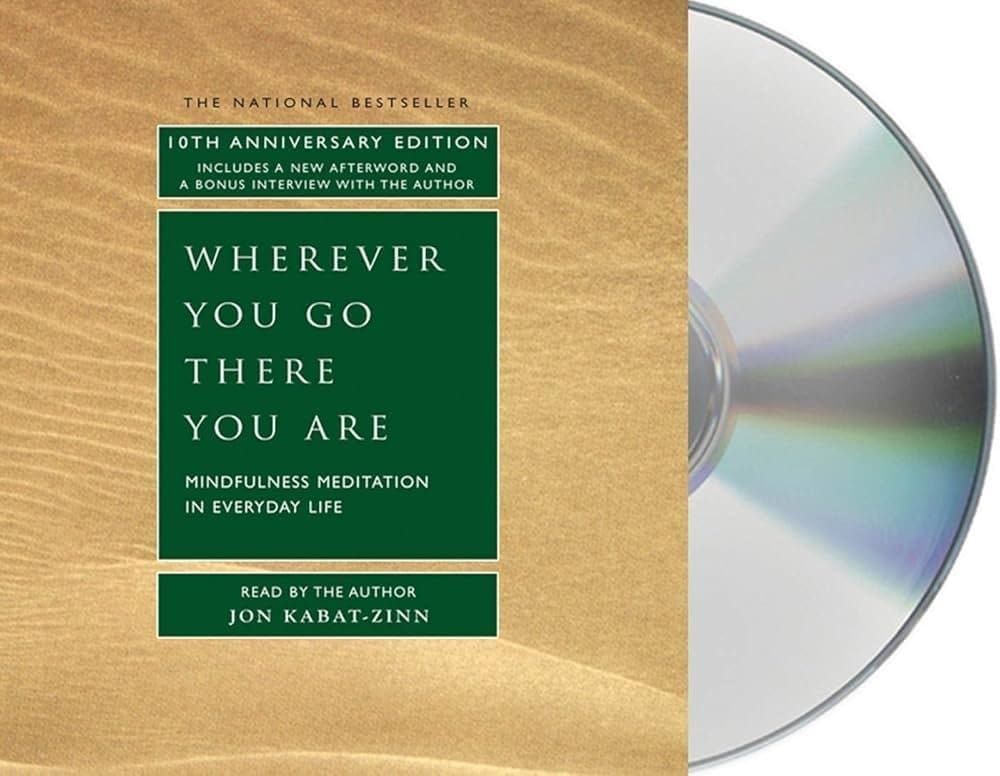
Image Source: Amazon.com
I found this book to be a practical guide to mindfulness meditation in everyday life. Kabat-Zinn, the developer of mindfulness-based stress reduction (MBSR), offers simple yet profound teachings on cultivating awareness. The book focuses on formal meditation practices, which I initially found challenging. However, as I continued reading, I discovered valuable insights for integrating mindfulness into daily routines.
Integrating mindfulness into daily life
Kabat-Zinn emphasizes that mindfulness is not just about formal meditation but also about living life in every moment. He suggests bringing our practice into the world, letting life become both the meditation teacher and the practice. This approach helped me find opportunities for mindfulness in everyday activities, from washing dishes to having conversations.
Formal and informal practices
The book covers both formal and informal mindfulness practices. Formal practices include sitting meditation, walking meditation, and body scans. Informal practices involve bringing awareness to routine activities like brushing teeth or typing emails. I found this balance helpful in developing a well-rounded mindfulness practice.
Cultivating awareness
Kabat-Zinn teaches that mindfulness is about paying attention on purpose, in the present moment, and without judgment. This simple yet powerful concept has helped me develop a greater sense of clarity and acceptance in my daily life. By practicing awareness, I’ve learned to navigate challenges with more ease and find peace in unexpected moments.
Mindfulness: An Eight-Week Plan by Mark Williams and Danny Penman
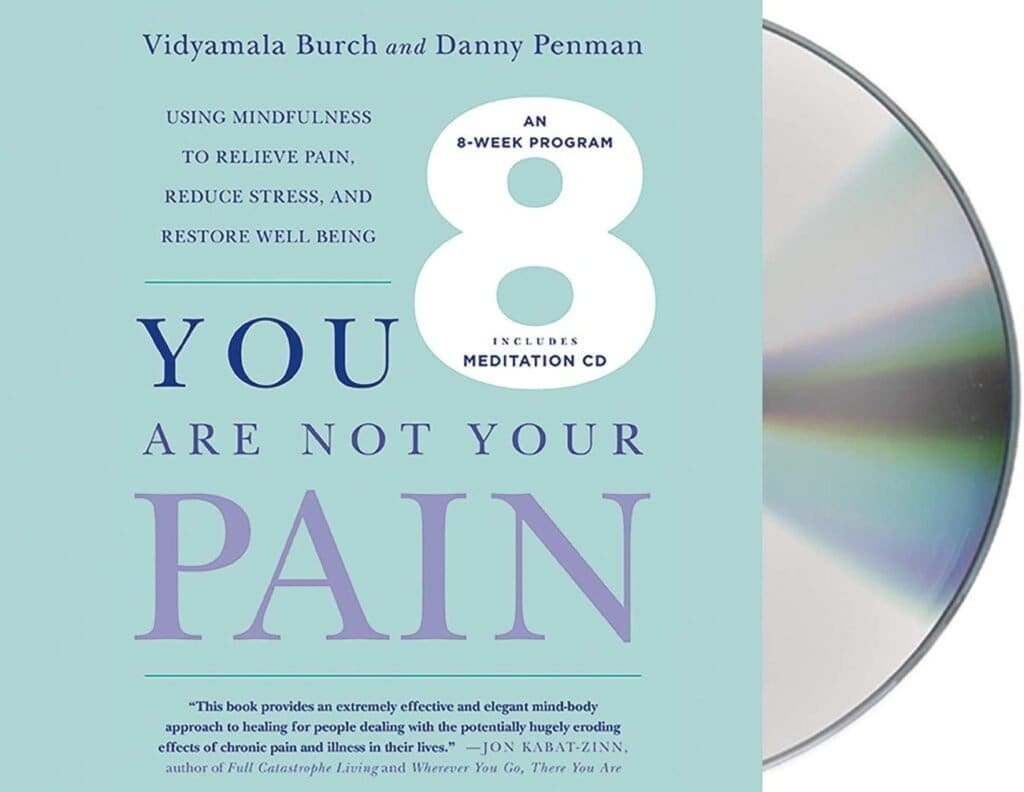
Image Source: Amazon
I found this book to be an excellent guide for developing a mindfulness practice. It offers a structured program that’s easy to follow, even for beginners like me. The authors, experts in the field, have created a practical approach to mindfulness meditation that can fit into our busy lives.
Structured mindfulness program
The book presents an eight-week plan developed at Oxford University. Each week introduces new mindfulness exercises and meditations. I appreciated how the program gradually builds on itself, allowing me to deepen my practice over time.
Scientific basis of mindfulness
What sets this book apart is its strong scientific foundation. The authors explain how mindfulness can change our brain structure and function, leading to long-term benefits. They cite research showing that mindfulness-based interventions can be as effective as antidepressants for some conditions.
Overcoming depression and anxiety
The program has been particularly helpful in managing my stress and anxiety. The authors explain how mindfulness can break the cycle of negative thinking that often fuels these issues. By practicing the techniques in the book, I’ve learned to respond to challenges more reflectively, rather than reactively.
The Power of Now by Eckhart Tolle

Image Source: Eckhart Teachings – Eckhart Tolle
I found this book to be a game-changer in my journey to mindfulness. Tolle’s teachings have helped me transcend thought-based consciousness and access inner stillness. The book emphasizes living in the present moment as the key to happiness and enlightenment. By surrendering to the now, I’ve learned to let go of past regrets and future anxieties. This shift has transformed my relationships, allowing me to be more present and empathetic with others. The Power of Now has taught me to appreciate the fleeting nature of life, making each moment more precious and meaningful.
Transcending thought-based consciousness
Tolle explains that our true identity lies beyond our thoughts and emotions. By observing my mind without judgment, I’ve learned to detach from the constant stream of thoughts. This practice has helped me break free from negative thinking patterns and find a sense of inner peace.
Accessing inner stillness
The book teaches techniques to access the power of presence within ourselves. I’ve found that focusing on my breath and body sensations helps me stay grounded in the present moment. This inner stillness has become a source of clarity and wisdom in my daily life.
Transforming relationships
Applying Tolle’s teachings has significantly improved my interactions with others. By being fully present and accepting what is, I’ve noticed a positive shift in my relationships. I’m now better able to listen deeply and respond with understanding, rather than reacting from a place of ego.
Full Catastrophe Living by Jon Kabat-Zinn
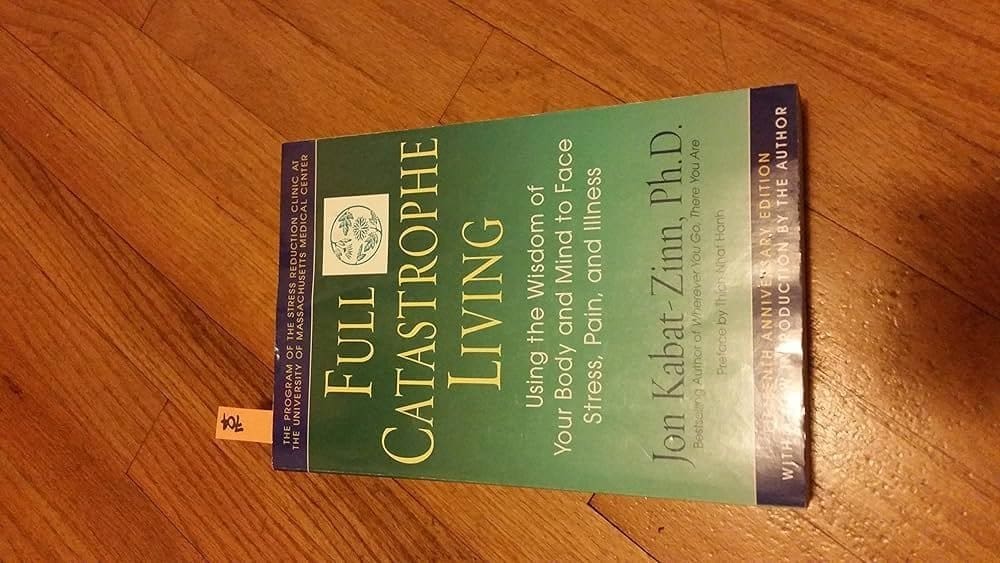
Image Source: Amazon.com
I found this book to be a comprehensive guide to Mindfulness-Based Stress Reduction (MBSR). Kabat-Zinn, the creator of MBSR, offers practical techniques to manage stress, pain, and illness through mindfulness. The book emphasizes the mind-body connection, showing how our thoughts and emotions impact our physical health. I learned how to apply mindfulness to chronic conditions, which has been incredibly helpful in my own life. The author’s approach combines meditation, yoga, and body awareness exercises to cultivate a deeper understanding of ourselves and our reactions to stress. This book has truly transformed my perspective on dealing with life’s challenges.
Radical Acceptance by Tara Brach
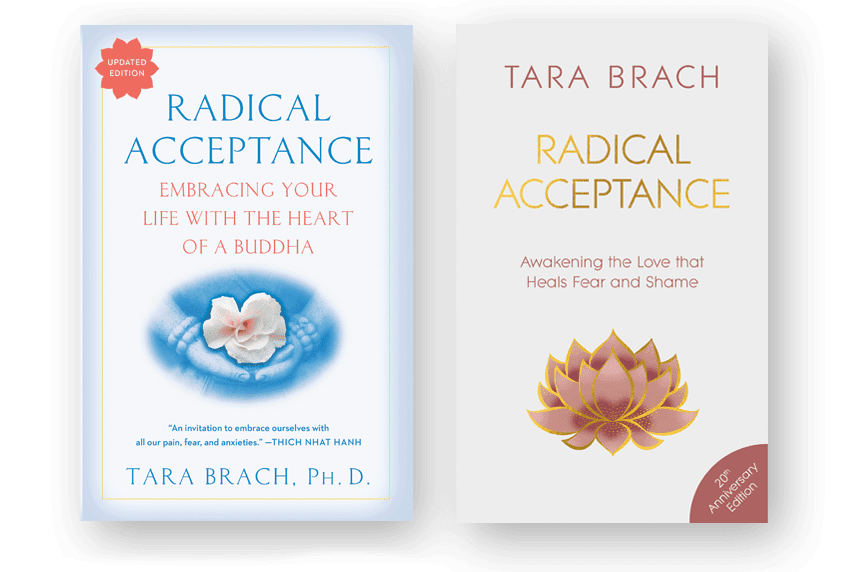
Image Source: Tara Brach
I found this book to be a transformative guide for overcoming self-judgment and cultivating self-compassion. Brach’s teachings have helped me embrace my imperfections and heal emotional pain. The book introduces the concept of “Radical Acceptance,” which involves clearly recognizing our experiences and holding them with compassion. Through powerful stories and guided meditations, I learned to pause and bring mindful awareness to my thoughts and feelings. This practice has allowed me to break free from the trance of unworthiness and treat myself with kindness. Brach’s approach combines Buddhist wisdom with Western psychology, offering practical tools to navigate life’s challenges with greater ease and self-acceptance.
Overcoming self-judgment
Brach explains that self-judgment often stems from a deep-seated belief that we’re flawed or unworthy. I learned that by recognizing this pattern, we can begin to shift our perspective. The book offers exercises to help identify and challenge negative self-talk. By practicing self-compassion, I’ve found it easier to accept my mistakes and imperfections without harsh criticism.
Healing emotional pain
Through Brach’s guidance, I’ve discovered that embracing our pain, rather than pushing it away, can lead to healing. The book teaches how to use mindfulness to sit with difficult emotions without getting overwhelmed. I’ve learned to approach my suffering with curiosity and care, which has helped me process and release long-held emotional wounds.
Cultivating self-compassion
Brach emphasizes that self-compassion is a skill we can develop with practice. The book introduces exercises like the “Self-Compassion Break,” which I’ve found helpful in moments of stress or self-doubt. By treating myself with the same kindness I’d offer a friend, I’ve experienced a profound shift in my relationship with myself and others.
Mindfulness in Plain English by Bhante Gunaratana
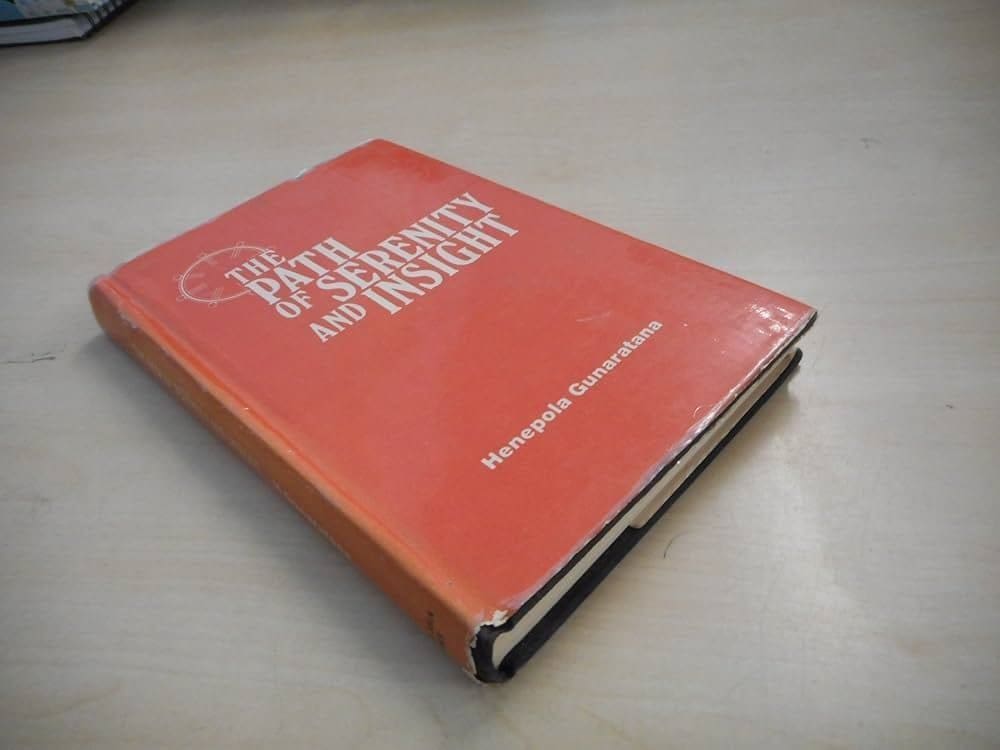
Image Source: Amazon.com
I found this book to be an excellent guide for beginners in mindfulness meditation. Gunaratana offers clear instructions that are easy to follow, making it one of the best mindfulness books for those starting their journey. The author’s Buddhist perspective provides a deep understanding of mindfulness principles. He explains how to develop concentration and insight, which are crucial for meditation practice. I appreciated how the book breaks down complex concepts into simple, practical steps. It helped me refresh my approach to mindfulness and gain a new sense of inner peace. This book is a must-read for anyone looking to explore mindfulness meditation in everyday life.
Clear instructions for beginners
Gunaratana’s approach is straightforward and accessible. He provides step-by-step guidance on how to start and maintain a meditation practice. I found his explanations of posture, breathing techniques, and dealing with distractions particularly helpful. The book offers practical tips that I could immediately apply to my own practice.
Buddhist perspective on mindfulness
The author’s deep knowledge of Buddhist teachings enriches the book. He explains the philosophical underpinnings of mindfulness in a way that’s easy to understand. This perspective helped me grasp the deeper purpose of mindfulness beyond just stress relief.
Developing concentration and insight
Gunaratana emphasizes the importance of both concentration (samatha) and insight (vipassana) in meditation. He explains how to cultivate these skills through various exercises. I learned techniques to sharpen my focus and develop a clearer understanding of my thoughts and emotions.
The Mindful Way through Depression by Mark Williams et al.
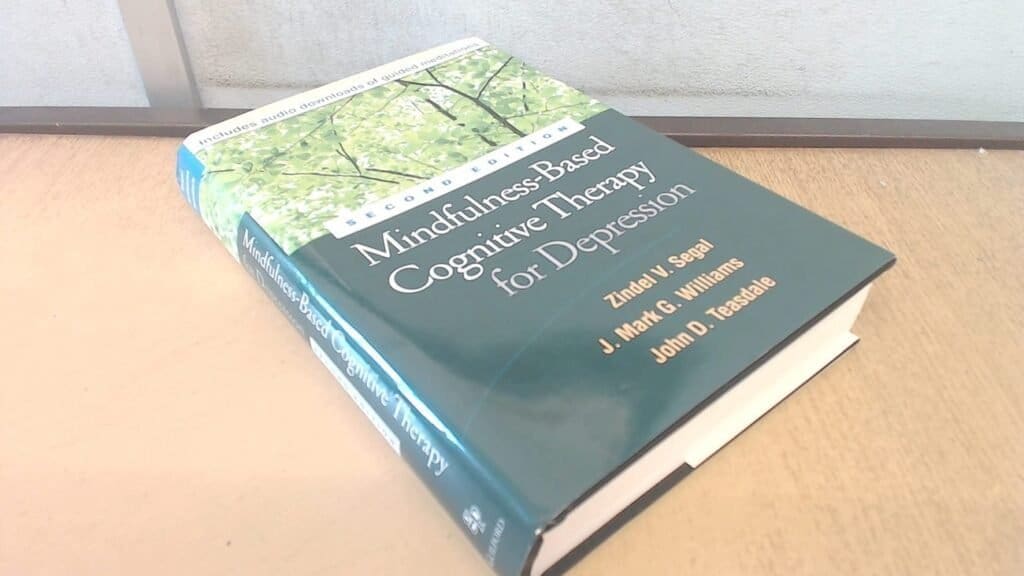
Image Source: Amazon.com
I found this book to be a powerful guide for breaking free from depression using mindfulness techniques. It combines mindfulness practices with cognitive therapy principles to prevent relapse and cultivate a new relationship with our thoughts.
Mindfulness-Based Cognitive Therapy (MBCT)
MBCT is an eight-week group program that integrates mindfulness exercises like yoga and body awareness with daily homework. Studies have shown that MBCT can be as effective as antidepressant medication in preventing relapse, especially for those with three or more previous episodes.
Breaking cycles of negative thinking
The book teaches how to recognize and disengage from deeply ingrained dysfunctional thoughts common in depression. By observing thoughts without judgment, we can break free from rumination and mind-wandering. This approach helps us see that we are not our thought patterns.
Preventing relapse
MBCT has been shown to significantly delay time to relapse in recurrently depressed patients in remission. The book offers practical tools to help readers recognize when their mood is beginning to go down and interrupt the automatic connection between negative mood and thinking.
Real Happiness by Sharon Salzberg
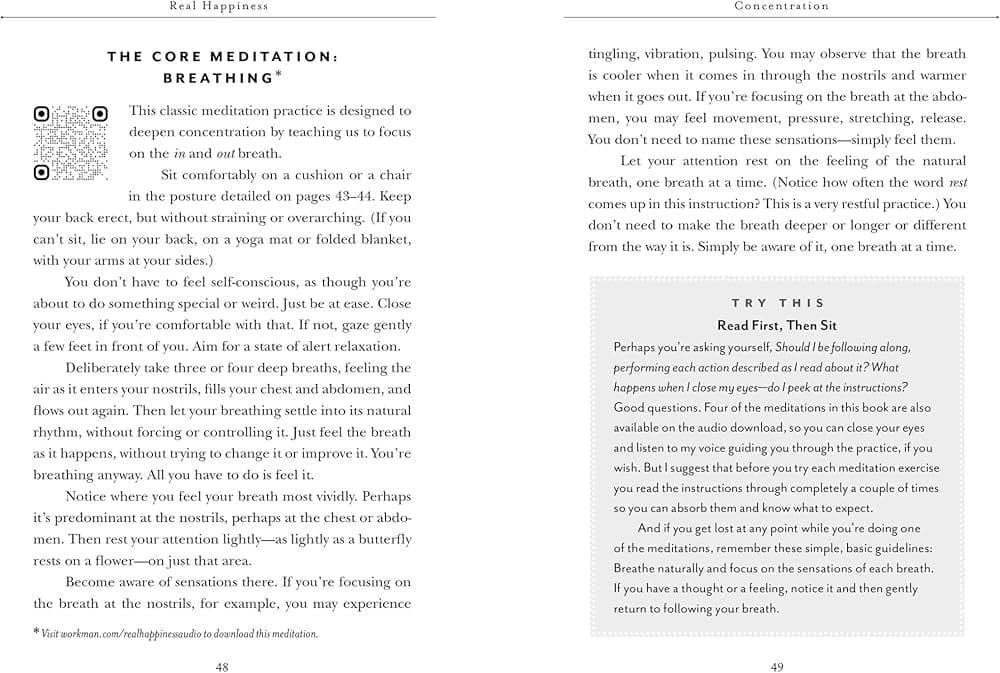
Image Source: Amazon.com
I found this book to be an excellent guide for developing a mindfulness practice. Salzberg offers a 28-day program that’s easy to follow, even for beginners like me. The book explains how meditation works and why a daily practice can lead to more resilience, creativity, and balance. I appreciated the practical approach, which includes twelve meditation practices, including mindfulness and walking meditation. The book also addresses common concerns of beginners, like “Is meditation selfish?” and “How do I know if I’m doing it right?”.
28-day meditation program
The book is structured as a four-week program, with each week focusing on a different type of meditation. I found the layout helpful, with introductions, practice previews, and various meditation techniques for each week’s focus. Salzberg provides tips and gentle reminders throughout, making it easy to follow along.
Loving-kindness practices
Salzberg emphasizes loving-kindness meditation, which involves silently repeating phrases like “May I be safe, be happy, be healthy, live with ease”. I learned that this practice is about offering goodwill to ourselves and others, fostering a sense of connection and compassion.
Integrating mindfulness into work and relationships
The book taught me how to apply mindfulness in daily life, including work and relationships. I learned that mindfulness can help reduce stress, improve focus, and foster better emotional regulation. By practicing mindfulness, I’ve found I can be more present and empathetic with others, enhancing my relationships both at work and in my personal life.
Altered Traits by Daniel Goleman and Richard Davidson
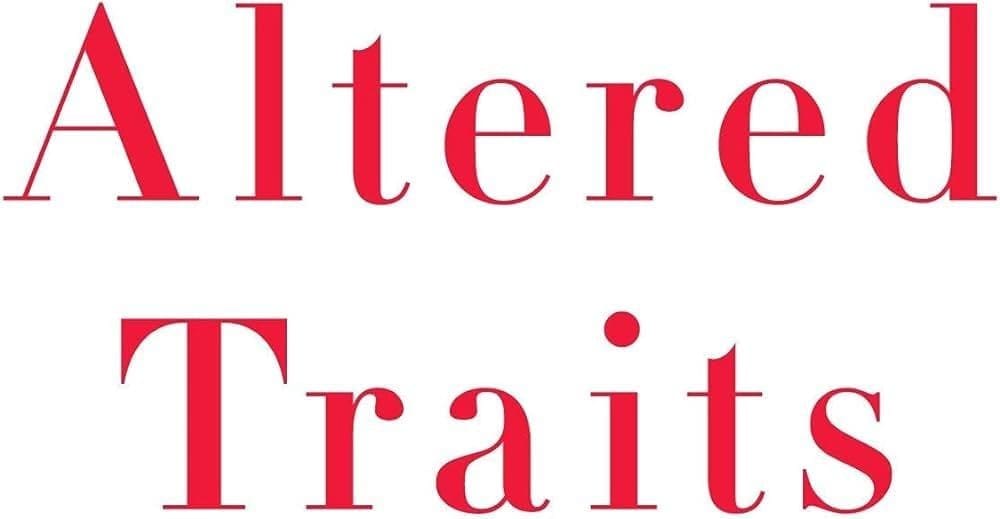
Image Source: Amazon.com
I found this book to be a fascinating exploration of the scientific research on meditation. Goleman and Davidson, both renowned experts in their fields, present cutting-edge studies on how meditation changes our mind, brain, and body. They focus on the long-term effects of mindfulness, showing that regular practice can lead to lasting positive changes in our traits.
Scientific research on meditation
The authors delve into rigorous studies that demonstrate how meditation impacts our brain and behavior. They highlight research showing that meditation can reduce stress, improve attention, and even alter brain structure. One study found that after just two weeks of meditation practice, students improved their graduate school entrance exam scores by up to 30%.
Long-term effects of mindfulness
What sets this book apart is its emphasis on the enduring benefits of meditation. The authors explain that with consistent practice, meditation can lead to “altered traits” – lasting positive changes in our personality and behavior. For instance, long-term meditators show decreased responsiveness to stress triggers and lower levels of the stress hormone cortisol.
Choosing the right practice for you
The book offers insights into various meditation techniques and their specific benefits. This information can help readers select a practice that aligns with their goals. For example, compassion meditation has been shown to increase empathy and altruistic behavior over time. By understanding the science behind different practices, we can make informed choices about which type of meditation might best serve our needs.
Conclusion
The journey through these mindfulness books offers a wealth of insights and practical tools to transform our lives. From Thich Nhat Hanh’s simple yet profound teachings to Jon Kabat-Zinn’s scientifically grounded approach, each author provides unique perspectives on cultivating mindfulness. These books have the power to enhance our well-being, improve our relationships, and help us navigate life’s challenges with greater ease and clarity.
As we explore these mindfulness practices, it’s important to remember that consistency is key. Regular practice, even for just a few minutes each day, can lead to lasting positive changes in our lives. Whether you’re new to mindfulness or looking to deepen your existing practice, these books offer valuable guidance to help you on your path to greater self-awareness and inner peace. The journey of mindfulness is ongoing, and these books serve as trusted companions along the way.
FAQs
What is the top recommended book on mindfulness?
The highly recommended book on mindfulness is “The Miracle of Mindfulness: An Introduction to the Practice of Meditation” by Thich Nhat Hanh. This book offers a gentle introduction to meditation, emphasizing the integration of mindfulness into everyday activities.How can I incorporate more mindfulness into my everyday life?
You can enhance mindfulness daily by:
Observing your thoughts without judgment.
Concentrating fully on your current task.
Engaging in deep breathing exercises.
Taking walks or doing other physical activities mindfully.
Keeping your focus on the present moment.
In what ways can mindfulness alter your life?
Practicing mindfulness can lead to better sleep, improved concentration, increased self-confidence, and greater forgiveness towards both yourself and others. It is particularly effective for reducing stress.How has mindfulness meditation impacted personal lives?
Mindfulness meditation has significantly transformed lives by shifting mindsets from stress, fear, and uncertainty to ones filled with abundance, acceptance, gratitude, and positivity. This shift enhances resilience, making it easier to manage daily stress and return to a state of calm.What are some of the best books that delve into mindfulness?
Some excellent books on mindfulness include “The Miracle of Mindfulness” by Thich Nhat Hanh, “Wherever You Go, There You Are” by Jon Kabat-Zinn, and “Mindfulness: An Eight-Week Plan” by Mark Williams and Danny Penman. These books provide valuable insights into practicing mindfulness effectively.

















